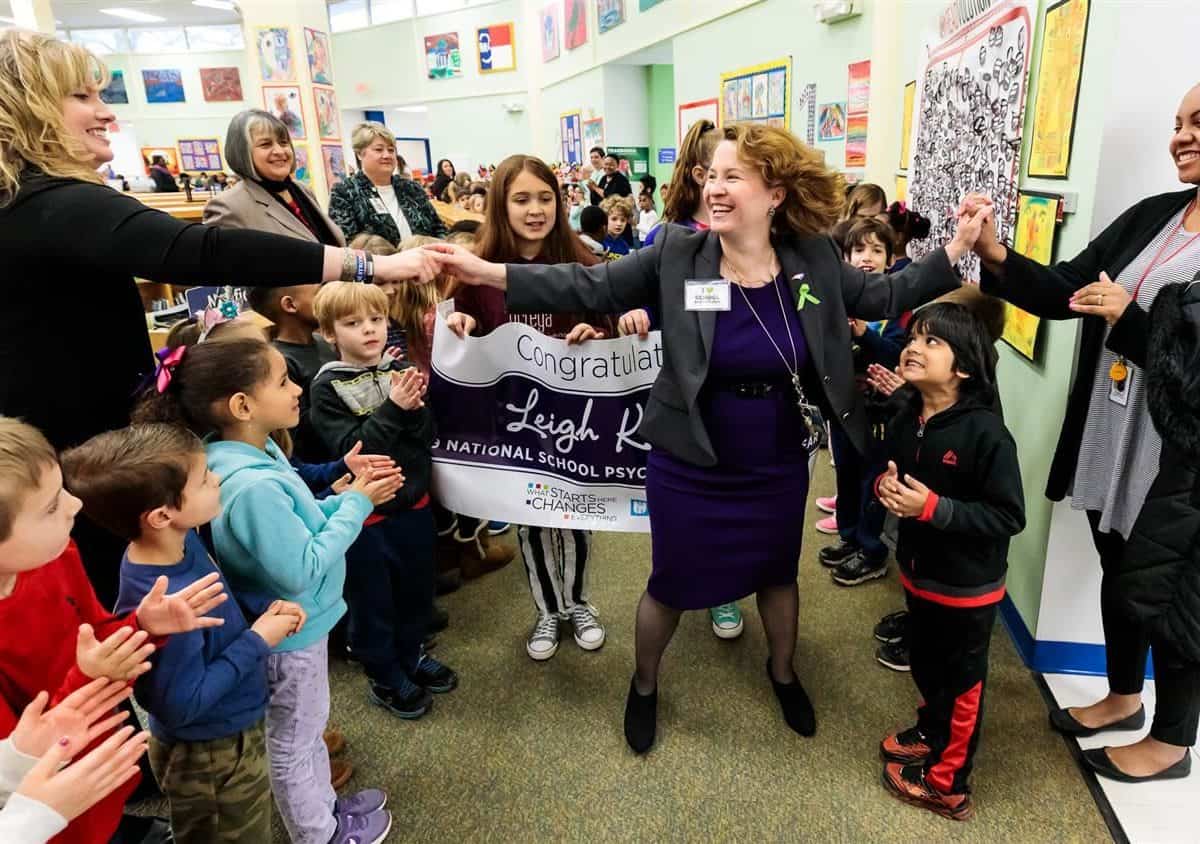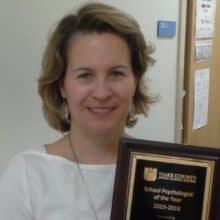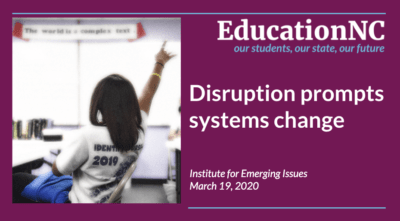

Guess how many school psychologists we have across North Carolina?
Did you know there are school districts without a school psychologist?
As weeks go, this last week has been one of the more anxiety provoking but interesting ones in my life and in my career as a school psychologist.
The personal
My vision of what my days teleworking would look like included an organized schedule — because each of my days at work is highly organized and focused. Last week was supposed to entail grade-level instruction at home for my elementary-aged child and some semblance of enrichment for my high schooler because teaching calculus and environmental science is far from my area of expertise. Of course, a seasoned professional like myself has the wherewithal to move into this with ease — or so one would assume.
I know my job. I have a sense of comfort and security of where I need to be and when and what needs to occur and who needs to be at the table. It’s a reassuring feeling and allows me to serve my school communities well and meet the needs of students and families.
Oh, but wait. Then last Monday happened.
My immediate thoughts were not on instruction or professional responsibilities. My priorities were on renewing prescriptions, getting groceries, checking on my older relatives, questions about my paycheck, and what I might need from my offices. Thoughts about work responsibilities were truthfully secondary because my family relies on me.
My reality changed. My colleagues’ reality changed.
Reality changed for our school families.
The professional
Just like in Harry Potter, I’m a “wands at the ready” kind of a person. All of our school psychologists are.
We’re trained mental health professionals and experts in working with students with disabilities.
But the work that the 743 school psychologists in traditional public schools across North Carolina do on a daily basis for 1.5 million school children changed on March 16, 2020.
While those in my profession are accustomed to the unknown and are trained to be problem-solvers even to the point of literally learning what a problem-solving model is as part of School Psychology 101, the COVID-19 pandemic is no ordinary problem.
We’ll have to adapt. We’ll have to hone our skills and dig deep.
Already, we’re collaborating within our districts and within our profession about what we can do for the fragile humans we know are out there needing support, while we can’t be with them right now in person.
Rockingham County Schools had this mental health hotline up and running on March 18.
We are thinking of how to increase access to our specialized support within the confines of what the COVID-19 pandemic dictates in the coming weeks and perhaps months.
But what happens in Greene County, Tyrrell County, Gates County, and others where there are no full-time employed school psychologists for too many reasons and for too many years?
School psychologists are the ones who will work with special education departments and other teams to seek solutions for how to connect with and engage the third grader with Down syndrome, the 15-year old with an autism spectrum disorder, the seventh grader who arrived in the United States last year with PTSD, and the fourth grader who simply needs a few minutes per week of one-on-one time with a trusted adult.
Right now, schools across North Carolina, our country, and our world need to solve problems at lightning speed.
School psychologists are trained to be our problem solvers on school teams. Let’s make sure every student has access to one.
This resource from the National Association of School Psychologists on talking to children about coronavirus has been translated in Spanish, Amharic, Chinese, Korean, French, and Vietnamese.




